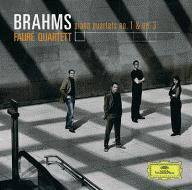Douglas Boyd Coinjures up a Romantic Evening of Darkness and Light with the Colorado Symphony Orchestra
Principal Guest Conductor Douglas Boyd was on the podium tonight with the Colorado Symphony. His command of the rich romantic language from Sibelius to Dvořák treated audiences to extreme worlds of the quixotic heart – that of the depths of darkness and the triumphant hero.
The concert opened with selections from Pelléas et Mélisande by Jean Sibelius. In his delightfully soft Scottish burr, Boyd offered a brief telling of the dark tale of these tragic lovers from the original play by Maurice Maeterlinck, for which the music was composed. This was the premier performance for the Colorado Symphony Orchestra of this very dark music.
Using a much smaller orchestra than Sibelius uses in his symphonies, the music still has plenty of depth. It opens with bold gestures to bring us to the gates of Golaud’s castle. Boyd played the role of sorcerer, conjuring various elements from the orchestra creating an array of menacing musical moods until the castle gates open with a triumphant timpani roll and the movement ends. The next movement is filled with a sense of loss as Jason Lichtenwalter played the beautiful theme on the English Horn. Here Boyd gracefully coerced silence from the music, allowing pauses rein as the sorrow of Mélisande floated from moment to moment. The third movement creates tension with buzzing violas endless churning the spinning wheel while the distorted thoughts of Mélisande grow more and more deranged. Boyd gracefully captured each chimerical facade of the music with precise strokes. Finally, we are confronted with the final movement, Mélisande’s death. Boyd sweeps from strength to strength until there is no more, bringing the orchestra down until death consumed both the music and the light.
To keep the first half of the concert in the darker realms of music, Richard Kirshbaum joined the Colorado Symphony Orchestra for Dmitri Shostakovich’ Cello Concerto No. 1. Written in 1959, only six years after Stalin’s death in a time where Russian musicians were perhaps celebrating a new birth of artistic expression, the music retains the anxiety and haunting nature of years of repression. The music starts edgy with bare cello and quiet winds. This builds to dramatic crescendos with the angularity of the music mimicked by Douglas Boyd's conducting style allowing the orchestra to heighten the strident nature of the music. It is as if the cellist were a man walking on the streets at night certain he is being followed, but unable to do anything but press on in the darkness. The orchestra pursues yet there is no where to run. There are moments when a somewhat demented heroic solo horn cuts through the fabric of the scene adding to sense of insecurity; even the authorities can not be trusted. Then the strings punctuate the night with shadows of daggers, fears of the eventuality. The end was so charged with excitement the entire concert hall felt as if it was holding its breath.
The second movement gave us the sense that the cellist made it home, but there is hardly a sense of security in it. There is an air of despair. The soloist ponders what to do; is there a future or just fear? Is there ever hope for an artist living in a repressive regime? Toward the end the music offers a glimmer of hope, but that feels more like reflection on a more innocent past, memories of when hope felt real and obtainable. Eventually the cello becomes resolved and we are treated to a virtuosic display in the cadenza. Richard Kirshbaum provided both expression and technical prowess as his fingers flew about the fingerboard, featuring runs, arpeggios, harmonics and double stops in an endless kaleidoscope of skill. Perhaps what Shostakovich is trying to say in this piece is regardless of the state, a mind determined is forever free.
To brighten the mood, Douglas Boyd and the Colorado Symphony Orchestra performed Antonín Dvořák’s New World Symphony No. 9 in E minor. With one of the most memorable openings in the symphonic canon, the music starts with a sense of quiet anticipation. This eventually leads to the strum of strings and timpani in preparation for the open theme of the horns. Although the music starts quiet, the mood of the hall was dramatically changed from dark and foreboding to bright and triumphant. Boyd captured the soaring strength in Dvořák’s music, translating each nuance in the music into openly transparent shafts of light. Boyd dovetailed a string theme into a flute melody then brought it back to the strings as the music grew brighter and stronger with each wave of his baton. The pace also increased with the intensity although not a constant accelerando, but rather a two steps forward with one step back allowing the tension to build without getting frantic. By the end of the first movement it almost felt as if we reached the finale – and there were still three more movements!
Jason Lichtenwalter on the English Horn was featured again with the beautiful theme of the second movement. Too often performances (and recordings) of this piece are so blended the various facets all become a wash of color. Douglas Boyd opted to isolate and emphasize the elements to bring to light the intricate weave of the music. By the end the audience was practically on their feet before the echo of the last note faded from the hall.
Finishing with a blazing triumphant piece like the “New World Symphony” ideally juxtaposed the somber music of the opening half. While Shostakovich might not normally be categorized as a romantic composer, his music is certainly fraught with emotion. Douglas Boyd and the Colorado Symphony Orchestra conjured up an evening of mercurial romantic music.
Colorado Symphony Orchestra under the direction of Douglas Boyd performs Sibelius, Shostakovich and Dvořák again on April 10th and 11th with Ravel, Elgar and Vaughan Williams April 16th & 17th.

Comments